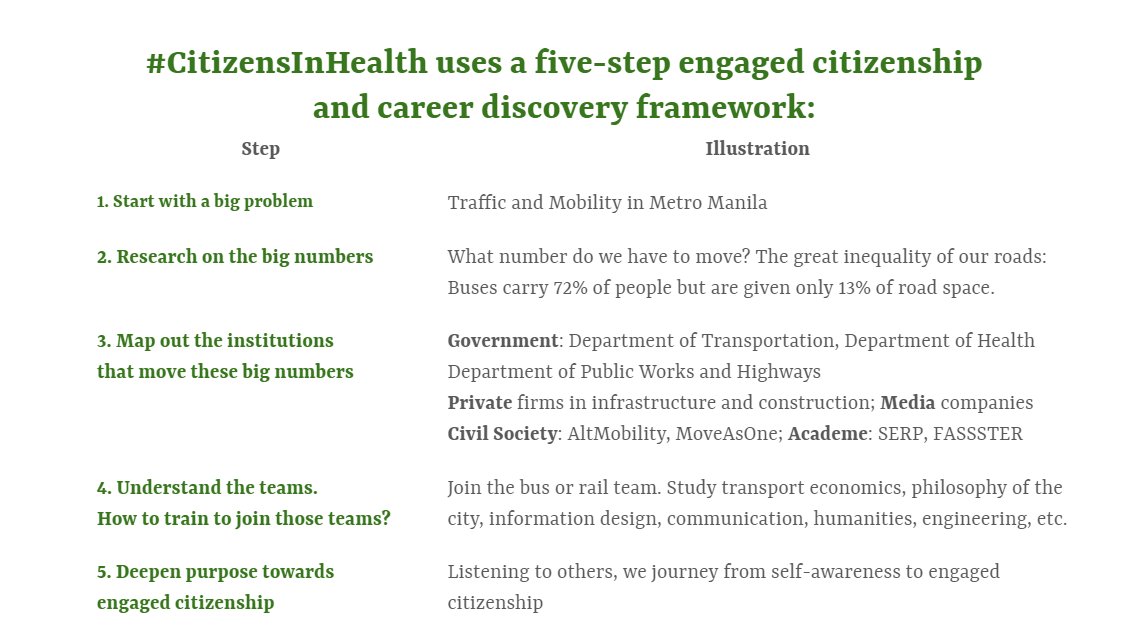1/ All of us want to "change the system". But my teachers and mentors taught me early on that changing the system is often NOT A GLAMOROUS, FLASHY act.
It's a A SERIES OF BORING DAILY ACTS of citizenship.
Systems change only lasts with the support and inclusion of people. It starts with a genuine desire to LISTEN.
How much time can we commit? What skills and networks can we contribute? What privileges and biases do we have? Where do our ethical lines lie?
If we have a seat on the decision-making table or organizing committee, we ask: are all impacted sectors represented? If not, invite.
I know this exposes privilege. Not everyone has time to organize. Organizers must try harder to reach out to those not represented.
We study. We research. We answer math book exercises. We do that design assignment. We finish that philo paper or lab report that hones our thinking and writing. We do well in org work.
People can get involved just by emailing or having conversations with experts in the field.
Many kindred spirits are generous with their time!
We need to work with many gardeners to take care of our field. But one day seeds will sprout and bear fruit. :)
Politics may be dirty, but not necessarily evil. Power may be used for good, for evil, or for many murky things in between.
Here is a proposed five-step framework from a class I taught on engaged citizenship. We now use this for our #CitizensInHealth career talk series. I will also talk about its limits.

When one asks, 'What is an meaningful career?', I think of my mom, a full-time mom.



